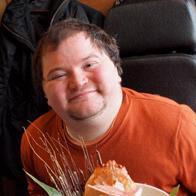
Chapters:
02:23 Penny reflects on the moment when Ansel was diagnosed, and what advice she would have now for her younger self.
08:47 Penny began the work that would become Moonrise soon after Ansel was diagnosed. “I was searching for a way to make his life, and my life, meaningful.”
17:16 Having a third child after Ansel’s diagnosis: “A lot of biting of nails”
23:25 Ansel testified to the FDA on behalf of Exondys, a DMD treatment (ultimately approved) that does not benefit him. “We’re a community and we have to stick together to a certain extent.”
25:37 As an adult, Ansel is not eligible for most DMD research, because children, who have less disease progression, provide better metrics.
27:33 Focusing on remediation versus focusing on a cure: a choice faced by parents, foundations, medical care-givers and patients themselves. Penny and Ansel discuss their own decision to pursue better management and not chase the silver bullet. “We were trying to normalize things.”
33:38 Clinicians should remember that they don’t always know the future.
Penny Wolfson’s book, Moonrise, grew out of her experiences after the diagnosis of her oldest son Ansel Lurio with Duchenne Muscular Dystrophy.
Today Ansel is 34 and his biography far exceeds the limited expectations of the neurologists who counseled his parents when he was a toddler. Penny credits incremental improvements in care for the successes they’ve had to date.
Her message to clinicians? Never assume you know for sure what the future will bring.

